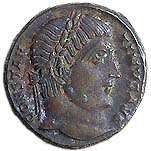 |
| Emperors: |
 |
 |
 |
 |
 |
 |
 |
© Michael C. Carlos Museum of Emory University,
Memorial Art Gallery of the University of Rochester and Dallas Museum of Art
For more information please contact odyssey@emory.edu.
Last Update:
